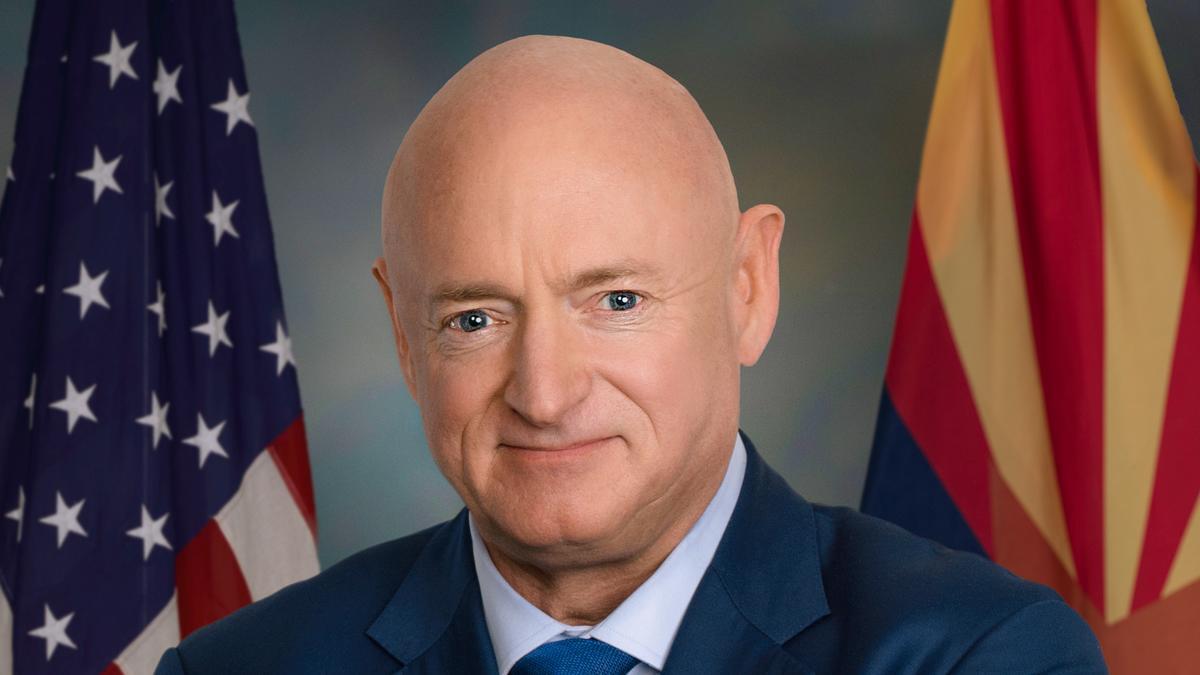U.S. Sen. Mark Kelly (D-AZ) | Wikimedia Commons (public domain)
U.S. Sen. Mark Kelly (D-AZ) | Wikimedia Commons (public domain)
A study by the Wharton School showed that the yearly cost of President Joe Biden’s plan to forgive student loan debt of up to $20,000 for some recipients could be up to $270 billion, and the 10-year cost could surpass $1 trillion.
Federal college aid has “exploded” in recent years and will continue to do so over the remainder of the decade, the Issues & Insights (I&I) Editorial Board said in a report this week.
"If the past decade’s aid spending remains constant, the federal government will be spending upward of $270 billion a year subsidizing colleges,” the Editorial Board continued. “That compares with $140 billion a year for food aid."
U.S. Sen. Mark Kelly (D-AZ), who is up for reelection in November, has supported Biden and his loan forgiveness plan.
"The reality is college costs too much, and the federal government should not be profiting off of young graduates," Kelly said in a recent Axios report. He added that Biden’s plan is "more targeted" than other proposals that would wipe out all student loan debt.
Biden announced in August that he would cancel $10,000 of federal student loan debt for borrowers making less than $125,000 a year, and up to $20,000 for those who received federal Pell Grants; FOX News reported. The president also extended pandemic-era payment freezes through the end of the year.
Biden’s plan includes three components: debt cancellation, loan forbearance and income-driven repayment (IDR) programs; an August Penn Wharton report said. The plan is estimated to cost $605 billion based Wharton’s strict “static” assumptions. But less-static factors of the IDR programs could drive the cost of the plan beyond $1 trillion.
Data from the College Board showed that federal aid given in 2020-2021 exceeded $134 billion, the I&I report said. In the past 10 years, the total amount of aid given for higher education has exceeded $2.6 trillion, including grants from states, institutions, individuals and employers. The Editorial Board noted that a college education is "an investment in yourself," and it’s meant to "pay dividends for the rest of a person’s life in the form of higher earnings."
"So why do taxpayers (most of whom never got a college degree) have to spend so much of their hard-earned money subsidizing others’ educations?" the Board asked.
Some experts predict Biden's plan will cause an incline in college tuition prices and add to the current inflation crisis, a recent Fox Business report said.
"Students will likely feel liberated to borrow more money on the assumption of future loan forgiveness, and universities will take advantage of the additional borrowing by raising tuition," Brian Riedl, a senior fellow in budget, tax and economic policy at the Manhattan Institute, told FOX Business. "This is pretty similar to the fact that historically 60% of all student aid increases have been captured with tuition hikes, and this will be treated like an increase in student aid moving forward, which suggests that 60% will be countered by tuition hikes."
The average grant aid for first-time, in-state students at four-year public colleges increased from $4,360 in 2006-07 to an estimated $8,100 last year (adjusted for inflation), a report from the College Board said. Additionally, the average published tuition and fees in that same sector increased from $7,730 to $10,740.





 Alerts Sign-up
Alerts Sign-up